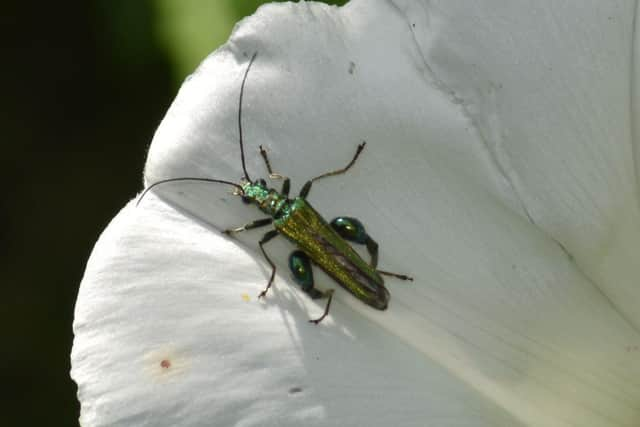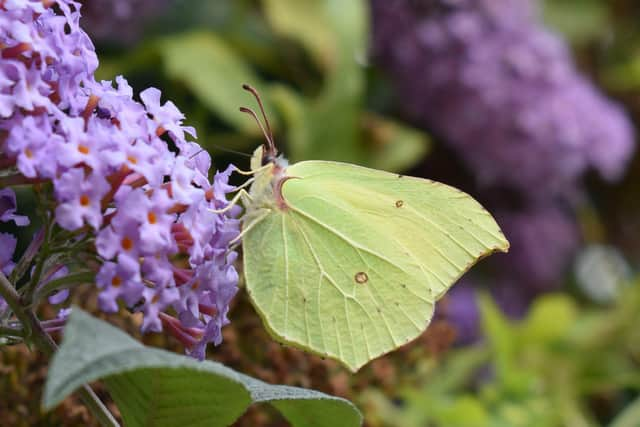How do you feel about bugs? Learn why invertebrates are so important to our planet
and live on Freeview channel 276
Stephen Savage, zoologist and education co-ordinator on the Shoreham Beach Local Nature Reserve, will be running a session on invertebrates next week, exploring people’s perception of bugs and their importance in nature.
He would normally welcome schools on to the reserve for hands-on learning but due to the pandemic, this has not been possible and he has instead been working in partnership with the education network to deliver free online teacher training sessions.
Advertisement
Hide AdAdvertisement
Hide AdIn the session How Do I Feel About Bugs? on February 8, from 4pm to 5.30pm, he will explain the vital role invertebrates play in our ecosystems and explain why the world cannot survive without them.


Stephen said: “Invertebrates are some of the most intriguing, beautiful and important animals on our planet. They have many vital roles that directly or ultimately affect humans in a positive way.
“However, while we marvel at the industrious bee and the beauty of the butterfly, many invertebrates are at best ignored and those we see as a threat to us or our crops we do our best to irradicate.
“People are often concerned about animals that they have an emotionally connection with, which can be a powerful tool for raising concern and awareness.
Advertisement
Hide AdAdvertisement
Hide Ad

“Our own gardens are home to animals that are as fascinating as those that inhabit rainforests and other exotic habitats. In fact our vegetated shingle beach at Shoreham is also home to terrestrial invertebrates including beetles, grasshoppers, hoverflies, bees, butterflies and moths.”
Stephen is passionate about these tiny animals and in the past, he has visited schools and run minibeast hunts on many occasions.
He added: “To many people, invertebrates are either beautiful and beneficial, or scary and unpleasant. But many of the invertebrates we consider as harmful to us or our gardens are in fact very beneficial.
“People often say they love nature but this can often be selective. We take negative aspects of invertebrates personally when they affect our lives, even though the animals have no idea we exist and are behaving in a way that they have for thousands of years.
Advertisement
Hide AdAdvertisement
Hide Ad“School grounds provide excellent opportunities for studying wildlife, including invertebrates.”
During the teacher training session, Stephen will show how children can explore why they feel the way they do about different invertebrates.
He explained there is no right or wrong answer, the aim is to explore our individual impressions and hopefully lead to an even deeper connection with nature.
For more information, visit exploresussexnature.wordpress.com/events
Looking for a bargain? CLICK HERE to find out where in Sussex to buy food past its best before date for just 20p
